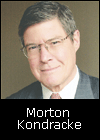Obama Should Spray the Taliban’s Poppies, Rep. Kirk Asserts

President Barack Obama should wage an aggressive, Colombia-style offensive against opium production in Afghanistan, Rep. Mark Kirk (R-Ill.) contends after returning from military service in the war zone.
[IMGCAP(1)]Particularly, he said, Obama should reverse Bush administration policy and Obamas own reported preference and authorize aerial herbicide spraying of the farms of drug kingpins in order to shut down the major source of funding for Islamic extremists.
Kirk also said in an interview that Obama should make use of his international popularity and call on NATO allies to send 20,000 more troops to Afghanistan and persuade Canada and the Netherlands not to go through with plans to pull theirs out.
In December, Kirk became the second Member of Congress and first House Member since 1943 to serve on active duty in a combat zone, witnessing parts of a major allied victory at Nad Ali in Afghanistans Helmand River valley, the source of nearly half the worlds heroin.
The Pentagon has barred Congressional reservists from active-duty service in combat zones since World War II, but Sen. (and Army Col.) Lindsey Graham (R-S.C.) broke the ban in 2006 and Kirk followed.
A Naval reserve officer, Kirk served for three weeks developing counter-narcotics plans in NATOs southern regional command and said he flew in a helicopter with the top U.S. general in the region, watching as British and Taliban forces exchanged artillery and small-arms fire.
Because U.S. troops were not directly involved, the battle of Nad Ali got little media coverage in America, but its result was that for the first time in history, [NATO] is directly in control of a major drug-producing area. So, a new policy is very much needed, Kirk told me.
This is especially true, he said, because the Helmand River valley rather than the Pakistan border region is the destination of most of the 20,000 to 30,000 additional U.S. troops scheduled to be sent to Afghanistan this year.
Assuming the plan goes as NATO expects, by September, President Obamas troops will control the major heroin-producing area on the planet for the first time in U.S. history, Kirk said.
Afghanistan accounts for 93 percent of the worlds opium production, according to the United Nations, and half of it originates in the Helmand River valley.
So then, the big question is going to be, whats our plan for 2010? Kirk said. The opportunity exists, he said, to slash the Talibans $500 million in drug profits per year, now used to buy the latest weapons, satellite communications and good uniforms.
Kirk said that Obamas policy should be similar to that pursued by the U.S. and the government of Colombia, culminating in aerial spraying of the poppy fields of die-hard top-level opium growers.
He said that after the military drives out the Taliban, the State Departments Bureau of International Narcotics and Law Enforcement Affairs, the Drug Enforcement Administration and the U.S. Agency for International Development should move in with offers of seed and fertilizer for farmers willing to plant alternative crops.
The military should support Afghan police to eradicate crops when people dont take the offer and support the DEA to take down drug kingpins, he said, policies that worked in Pakistan as well as Colombia.
In Colombia, authorities chopped down drug crops grown by low-level producers, but sprayed farms owned by drug bosses. At that point, Kirk said, most of the valley will flip.
Aerial spraying was barred as a U.S. tactic because the Bush administration feared arousing images of the Soviet occupation of Afghanistan, he said.
Kirk said hes heard from Obama transition officials that Obama strongly opposes spraying, but Kirk said that spraying just the land of kingpins would do less environmental damage than drug production already does in the Helmand and adjoining provinces near Kandahar.
Graham, just back from a Congressional trip to Iraq and Afghanistan with Vice President-elect Joseph Biden, says he agrees with Kirk on the need for an aggressive anti-drug policy, but he favors employing jobless Afghans to uproot the crops instead of spraying.
Most Afghans consider the drug trade un-Islamic, Graham told me, and we should help them show it. He does favor all-out war on drug labs and prosecution of drug lords.
Graham said he also told Obama on Wednesday to push for $1.5 billion in aid to Pakistan over 10 years to bolster its anti-extremist campaign.
And, while asking NATO allies for more troops where possible, Graham said, Obama should ask others for more money and police trainers.
Kirk and Graham both agree with Obama that Afghanistan has been a forgotten war and that the Taliban is resurgent. Destroying opium and Taliban funding would be good strategy for an allied comeback.





